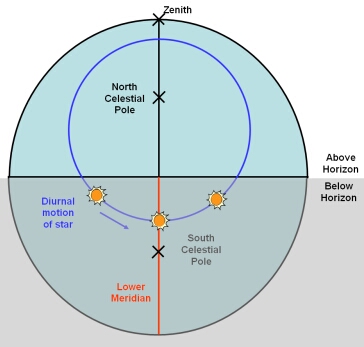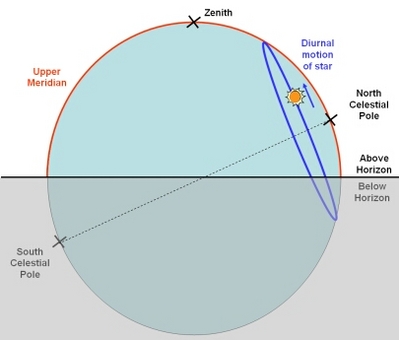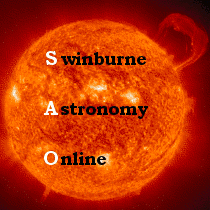Upper Meridian
A meridian is an imaginary great circle on the celestial sphere that passes through the north and south celestial poles and an observer’s zenith. The Upper Meridian is the semi-circular segment of the meridian that is above the observer’s horizon. On the opposite side of the celestial sphere from the upper meridian is the lower meridian.
An Upper Meridian transit occurs when a celestial object moves across the upper meridian. Local noon is the time when the Sun undergoes an Upper Meridian transit.

|
The upper meridian passing through the north and south celestial poles, and the observer’s zenith. This view is looking from the east towards the west for an observer in the Northern Hemisphere. The lower meridian is that part of the great circle below the horizon. |

|
The same situation as in the diagram to the left, but viewed from the east looking towards the west for an observer in the Northern Hemisphere. |
Study Astronomy Online at Swinburne University
All material is © Swinburne University of Technology except where indicated.

